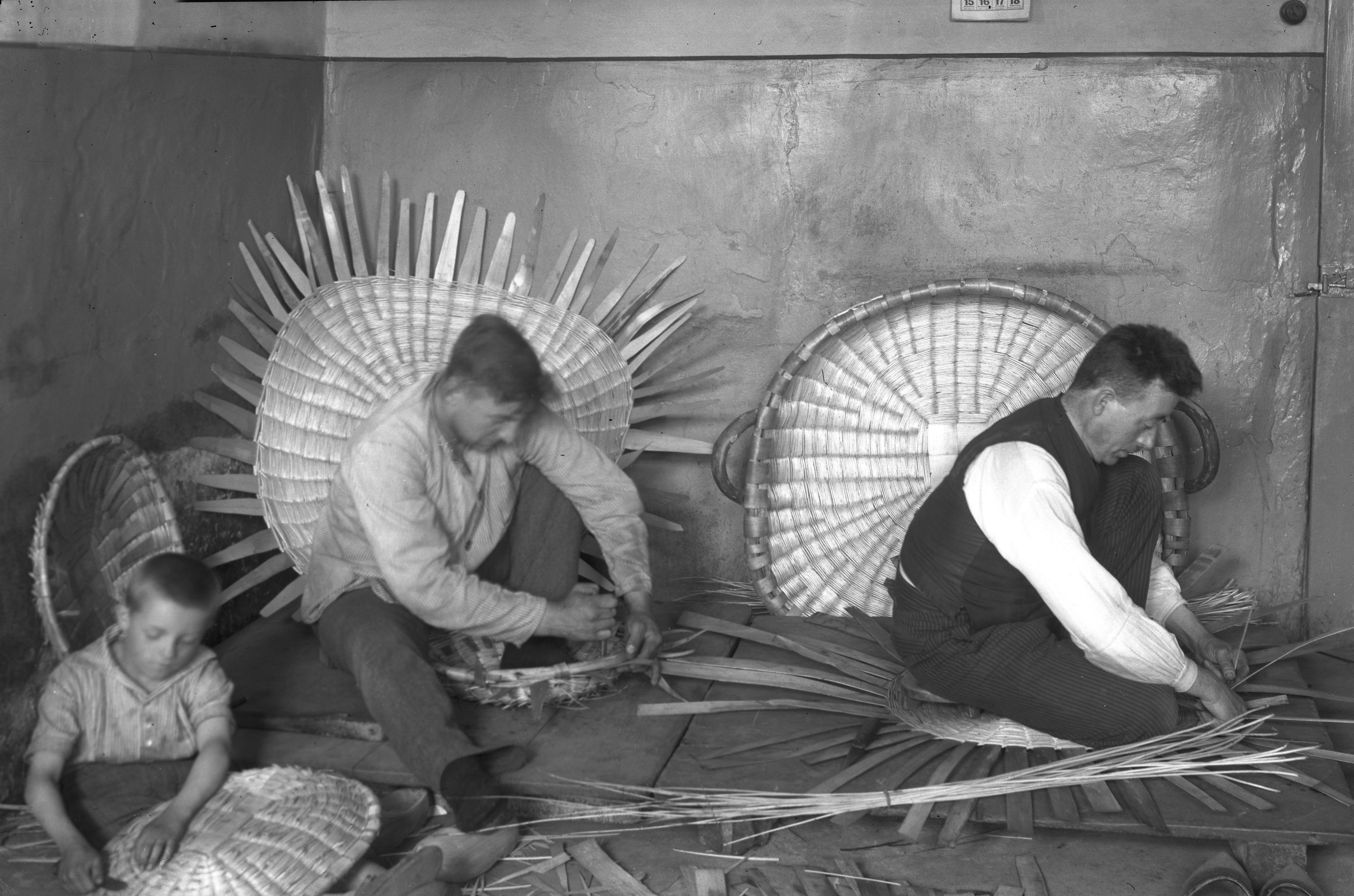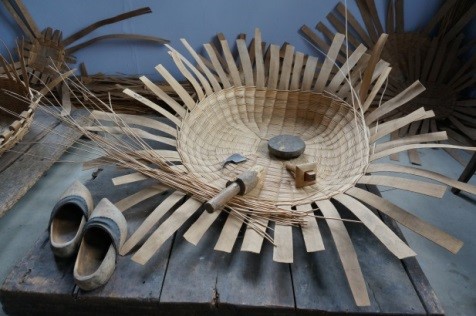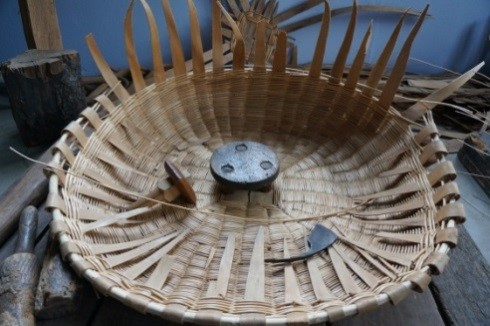Wannenmachermuseum
 Werkstatt Beike, Rheiner Straße
Werkstatt Beike, Rheiner Straße
 Werkstatt Ascheberg
Werkstatt Ascheberg
 Albert Wiening beim Staben
Albert Wiening beim Staben
 Die Wanne nimmt langsam Form an
Die Wanne nimmt langsam Form an
 Fast fertige Wanne
Fast fertige Wanne
 Tünisen (Foto Thomas M.Weber)
Tünisen (Foto Thomas M.Weber)
 Verschiedene Wannengrößen
Verschiedene Wannengrößen
 Spleiten der Weidenstammstücke in der Werkstatt Beike
Spleiten der Weidenstammstücke in der Werkstatt Beike
 Wannenmacherurkunde von 1645
Wannenmacherurkunde von 1645
For centuries, the trade of making Wannen influenced the economical life of Emsdetten. The prince-bishop of Münster, as sovereign, granted the Wannen maker of Emsdetten the monopole position within the diocese of Münster. A guild rule, dating back to the 16th century, forbade persons who did not live in Emsdetten to take up this trade. Further important points of this guild rule were to ensure a sufficient income for the Wannenmacher by limiting the number of apprentices; ensuring the quality of the Wannen by the laid-down apprenticeship and the manufacture of a “master piece”; the mediation of internal disputes referring to the cutting of the willows and the sale of the Wannen.
The knowledge and terms of the making of the Wannen were past down verbally from generation to generation. Many terms for the different parts of the Wanne, the tools and the working process are stilled used today when speaking dialect.
Quellen:
Willi Colmer, Emsdetten. Ortsgeschichte vom Mittelalter bis zum 20. Jahrhundert. Emsdetten 2003, S. 263-283
Das Wannenmachermuseum zu Emsdetten. Darstellung und Geschichte eines alten Handwerks. Hrsg. Stadt Emsdetten.
Emsdetten 1986, S. 4-35
Jürgen Buschmeyer, Emsdetten vom Dorf zur Stadt. Greven 1988, S. 59-66
Gruß aus Emsdetten. Hrsg. Heimatbund Emsdetten. Emsdetten 201, S. 275-278
Abbildungen
Fotosammlung Heimatbund Emsdetten
Fotos teilweise von Thomas M.Weber
 Deutsch
Deutsch Englisch
Englisch Niederländisch
Niederländisch Polnisch
Polnisch Plattdeutsch
Plattdeutsch